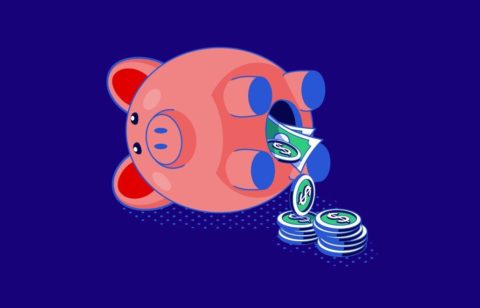Finding financial support when you have a bad credit history can seem impossible. The task can be especially unpleasant when dealing with the wrong sources or financial institutions. Many banks or credit unions offer debt consolidation loans but they are hard to obtain without a spotless credit record.
Credit unions and banks have very high standards for who is eligible for their financial aid. Going to one of these establishments for help in this financial crisis can be frustrating and discouraging, but there are other options to consolidating debts when dealing with a bad credit history.
If you have tried the various banks and credit unions as sources of financial assistance in debt consolidation and been turned down, it could be time to seek out a reputable debt consolidation company. These companies cater specifically to those who have landed themselves in unfavorable standings with the credit bureau.
It will be important to watch out for fraudulent agencies working to exacerbate your financial situation for their personal gain. Taking the appropriate precautions and ascertaining the validity of the business in question is a crucial first step to full credit consolidation.
Researching the options available to you is important when considering debt consolidation. Following are some of the most pressing questions people with bad credit history have when seeking financial aid out of this particular issue. Read over this list of FAQs regarding debt consolidation for people with bad credit history and pick up essential information you need to choose the best course of action for you
What can be done about unsecured debt consolidation?
Those seeking to address their unsecured debts will find the following options are available. The selection of the best course of action for your situation will depend on the specifics of your situation and factors such as total overall debt, interest rates, and more.
Negotiation and Settlement — Debts can be reduced by re-negotiating the principle for the balance the borrower owes the lender. While the exact amount the debt is reduced by will depend on a variety of factors, in many situations the balance owed by consumers was lowered by as much as 40 – 60%. This has been considered one of the most cost-effective and time-efficient approaches to debt consolidation. One disadvantage of this method is the bad marks that will reduce credit scores. Of course, there is also no guarantee of success and proper planning and consideration will be essential to success.
Counseling and Debt Management — Another way to address unsecured debts is by re-negotiating the scathing interest rates that can accompany credit card and other debts. This will also involve a plan for payments that best suits everyone involved. An interest rate reduction will facilitate the payments for a debt by ensuring a higher amount of cash goes to reducing the principal balance.
Credit Card Balance Transfers — This technique of addressing the debts in multiple credit cards involves consolidating all credit card payments into one credit card with a lower interest rate or small payment system. This is perhaps the most traditional approach to consolidating credit card bills. It will be essential to find a reputable zero interest credit card company to transfer all your debts into.
Debt Consolidation Loans — This way of facing financial responsibility involves taking out a loan sizable enough to pay off as many outstanding debts as possible. If this is the best course of action for you, it will be important to consider the interest rates involved. You will want to find something considerably lower than those you are currently facing or you will only find the situation exacerbated.
Is a consolidation loan usually a better option for receiving debt relief?
Loans can be a better course of action in some cases and in others not. In many cases, it would be more convenient to choose debt settlement, counseling or possibly even bankruptcy to find debt relief. The amount of regular income you can expect is an important consideration here as is the total amount of the debt you are hoping to pay off.
As is often the case, those who need the debt relief the most are those with no eligibility for consolidation loans from most banks or credit unions due to issues such as low credit scores, late payment histories, total amounts of outstanding debts and other considerations that discourage the lender from providing financial aid. If debt consolidation is not an option available to you, you may find help in a debt management plan. You can find the top debt consolidation companies here.
Are debt consolidation agreements the same as loans that consolidate bills?
Not exactly. A debt consolidation company will offer a program that covers debts that don’t involve taking out loans. The company will work with the person seeking financial aid to come up with a debt management plan that will address the situation.
What is a debt management plan?
A debt management plan works to collect all your unsecured accounts into one easy-to-manage monthly payment which will be sent to the creditors involved in your program. You will find all of the accounts included in your debt management plan will be frozen or closed during the course of the program, and you will find that opening up new lines is quite difficult or impossible until the program is finished.
Because the debt management program will give you a chance to pay off your accumulated unsecured debts without incurring any further financial responsibility, creditors will typically be predisposed to providing the special benefits that allow the individual to pay off their debt and resume control of their financial situation.
These benefits may include reducing or eliminating excessive interest rates, calling off collections agencies and court hearings or canceling late fees and over-the-limit fees.
What does the debt management plan look like?
When you begin your debt management program, your debt management company will give you a full overview of your current situation in regards to your goals of financial rehabilitation with your various creditors. The best agreement options will be drawn up and delivered to all concerned. Once you, the borrower, have reviewed and returned the agreement along with the date to begin the debt management program, proposals can be submitted to creditors for lowering repayment and interest rates.
After this, it will be a matter of making the single monthly payment to your management company who will take it upon themselves to disburse payments to your creditors as the agreement dictates. You will also be in regular contact with your debt counselors who will keep you informed on the progress of your program and provide you with updates from creditors and may even solicit feedback from you.
As the program nears its end, certain accounts will be paid off and eliminated from the program. The company providing your debt management service will then work with you to decide on the best way to continue addressing those that remain. You will also have the access to check on your accounts and the progress of your management program at any time.
How long will the debt management program take to complete?
The road to debt consolidation can take as long as five years to complete, but with favorable conditions, it can take as little as three years from start to finish. After which the participant will have the chance to re-establish a consistent credit history and good standing with the credit bureaus.
What are the advantages of a debt management plan?
The primary advantage of a debt management plan is the convenience of several out-of-hand accounts collected into one easy-to-manage plan with a single reduced payment and lower interest rates throughout the course of the management program.
Unlike bill consolidation loans, your interests rates across various accounts are modified and most often lowered considerably. Many times the figures as high as 20% to 30% have been lowered to 9% or even 6%.
Finally, all those over-the-limit and late fees will be discontinued during the remainder of your program (this is how it works with most debt management agreements).
Who creates the debt management plan?
A team of financial experts will work to fully understand the personal concerns, financial position and goals of the person looking to consolidate their debts. They then take all the information you can provide them on expenses, income, and other details and help you devise an intelligent spending model that has practical application in your situation. This will be used to present you with a full set of options available to your situation.
How much will a debt consolidation plan cost?
There is no charge for your regular counseling sessions. After this, there is usually a one-time enrollment fee or set-up charge as well as a monthly charge for handling the debt management program. Other than this there are no upfront charges or closeout fees. There are even some special offers available from different companies offering debt management programs.
Do all unsecured debts need to be added to my debt management plan?
Not necessarily, but this will be something to consider fully. The reason for a debt management program is to help you get out of debt completely. With this in mind, it is important to make sure no additional debts are acquired during the duration of the program. There are exceptions to every rule but getting out of debt should be your priority. Discussing the full details of your situation with your financial advisor can improve your chances of success on the program.
Remember that your creditors can still have requirements and monitor you throughout the program. If you are caught shopping on department store cards or credit cards, you may find this creditor leaving the program and you incurring a small problem by losing the benefits they provided.
How many accounts can be included in a single debt management program?
There are no limits to the number of accounts that can be inserted into a debt management program. From medical bills and credit cards to personal loans and department store credit, all can be included in a debt management program. Creditors are more inclined to help out their borrowers when they are making the effort to address their financial responsibility.
Placing all credit cards on the program shows an earnest commitment to paying off one’s debts.
Are all my accounts in a debt management program closed?
Nearly all your creditors will ask that accounts be closed while on a debt management program. If you will be entering a debt management program in the future, you can make your credit history look better by requesting your accounts be closed at “consumer’s request.”
Can new lines of credit be opened while enrolled in a debt management program?
It is strongly recommended that those reestablishing their credit in a debt management program refrain from taking on new financial responsibilities before they have fully addressed their current financial concerns. Many of your creditors will discontinue their participation in the program if you do. Loans taken out over vehicles and housing are of a different sort and may be permitted in a debt management program but more information will be required from the specific provider.
In Conclusion
Having a bad history in credit can be a significant obstacle to financial liberty in the modern world. Never forget there are many options available to you.







